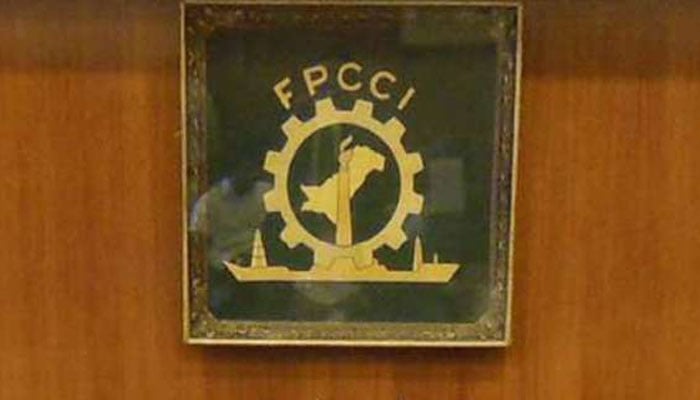Closure of industrial units warned on gas price hike
KARACHI: The Federation of Pakistan Chambers of Commerce and Industry (FPCCI) on Tuesday opposed the government’s decision to raise gas tariffs that it said would adversely affect the industrial sector reeling from monthslong lockdown.
FPCCI said the decision would hit exporters and value-added sector with increase in cost of energy and production. The government was demanded to withdraw the proposal of the increase in gas tariffs for consumers of Sui Southern Gas Company.
“Otherwise, the industry will face closing down of units which will ultimately result in unemployment and labor instability,” Anjum Nisar, president of FPCCI said in a statement.
The government was proposed to increase natural gas prices by up to 143 percent to recover Rs94 billion from consumers. The hike in prices will directly affect 9.4 million domestic consumers; 3.6 million of them fall in the lowest income slab and another 2.6 million in the second-lowest income group. Electricity will become expensive by 12 percent due to the increased prices of natural gas, according to a FPCCI’s estimate.
Nisar said the economy has already been affected by lockdown related to coronavirus and urban flooding during the last seven months. The industries particularly small and medium enterprises are striving to deal with the post-corona economic crunch and need to get support in one or another way.
“It seems cruel to overburden the industries with inflation,” he said. “An increase in natural gas costs will further weaken the economic environment which is already under threat on various fronts.”
The Economic Coordination Committee of the cabinet allowed raise in the gas prices by 10 percent for the lowest slab domestic consumers and by 143 percent for the highest slab of domestic consumers. It also approved increasing gas prices for commercial and industrial consumers from 30 to 57 percent that will increase prices of fertiliser, manufacturing units, electricity generation, cement, and compressed natural gas.
Up to 143 percent increase in gas prices is expected to follow around a 35 percent increase in electricity prices in the coming weeks. “This shows that the gas consumers will pay an additional Rs94 billion in the ongoing fiscal year to gas utilities,” Nisar said.
In September, the ministry of petroleum proposed a reduction in natural gas prices by up to 12.3 percent for captive power plants, 15.2 percent for captive plants in the textiles sector, 5.6 percent for textile processing units, 4.5 percent for gas industry and compressed natural gas stations, 3.9 percent for cement and 5.4 percent for power sector.
-
 'Elderly' Nanny Arrested By ICE Outside Employer's Home, Freed After Judge's Order
'Elderly' Nanny Arrested By ICE Outside Employer's Home, Freed After Judge's Order -
 Keke Palmer On Managing Growing Career With 2-year-old Son: 'It's A Lot'
Keke Palmer On Managing Growing Career With 2-year-old Son: 'It's A Lot' -
 Key Details From Germany's Multimillion-euro Heist Revealed
Key Details From Germany's Multimillion-euro Heist Revealed -
 David E. Kelley Breaks Vow To Cast Wife Michelle Pfeiffer In 'Margo's Got Money Troubles'
David E. Kelley Breaks Vow To Cast Wife Michelle Pfeiffer In 'Margo's Got Money Troubles' -
 AI-powered Police Robots To Fight Crime By 2028: Report
AI-powered Police Robots To Fight Crime By 2028: Report -
 Everything We Know About Jessie J's Breast Cancer Journey
Everything We Know About Jessie J's Breast Cancer Journey -
 Winter Olympics 2026: What To Watch In Men’s Hockey Today
Winter Olympics 2026: What To Watch In Men’s Hockey Today -
 Winnie Harlow Breaks Vitiligo Stereotypes: 'I'm Not A Sufferer'
Winnie Harlow Breaks Vitiligo Stereotypes: 'I'm Not A Sufferer' -
 Apple Martin Opens Up About Getting 'crazy' Lip Filler
Apple Martin Opens Up About Getting 'crazy' Lip Filler -
 Why Did OpenAI Remove One Crucial Word From Its Mission Statement?
Why Did OpenAI Remove One Crucial Word From Its Mission Statement? -
 Prince William Warned His Future Reign Will Be Affected By Andrew Scandal
Prince William Warned His Future Reign Will Be Affected By Andrew Scandal -
 Amy Madigan Reflects On Husband Ed Harris' Support After Oscar Nomination
Amy Madigan Reflects On Husband Ed Harris' Support After Oscar Nomination -
 Is Studying Medicine Useless? Elon Musk’s Claim That AI Will Outperform Surgeons Sparks Debate
Is Studying Medicine Useless? Elon Musk’s Claim That AI Will Outperform Surgeons Sparks Debate -
 Margot Robbie Gushes Over 'Wuthering Heights' Director: 'I'd Follow Her Anywhere'
Margot Robbie Gushes Over 'Wuthering Heights' Director: 'I'd Follow Her Anywhere' -
 'The Muppet Show' Star Miss Piggy Gives Fans THIS Advice
'The Muppet Show' Star Miss Piggy Gives Fans THIS Advice -
 Sarah Ferguson Concerned For Princess Eugenie, Beatrice Amid Epstein Scandal
Sarah Ferguson Concerned For Princess Eugenie, Beatrice Amid Epstein Scandal




